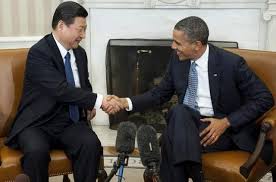Co-authored by Dr. Stephen Bryen

No matter what President Obama and China's President Xi Jinping agree this week, China will not stop cyber espionage.
China may decide, as a result of the upcoming summit meeting, to crack down on hackers who operate independently, or who moonlight for profit in the hours they are not working for either China's government or China's military. That will be a bone to try and lower the tension that has been building between China and the U.S. on the issue of cyber theft. But it won't really make a big difference.
There are, roughly speaking, five kinds of cyber crime.
The first is based on vicarious hacking by groups of computer geeks who want to show off their prowess and gain bragging rights for successfully attacking important institutions and organizations. The "thrill" involved is to show how smart they are, how brilliantly they can defeat the CIA or the Pentagon.
The second group grows out of the first but it has become ideological. Ideological hacking is hacking for a political purpose. Many of the ideological hackers are really anarchists in modern dress. This kind of hacking has been growing and is illustrated by phenomena such as Wikileaks and its leader Julian Asange, currently holed up in the Ecuadorian Embassy in London while wanted by Sweden where he has been charged with rape.
The third type of hacking is "For Profit." Information is stolen, bank accounts and money machines are pilfered, sometimes blackmail is used. For Profit hacking is not always separable from ideological hacking or from vicarious hacking.
Fourth is cyber crime against individuals and political groups carried out by governments. Sometimes this is pursuant to law and follows a legal process, but not always (even in the U.S. where phones can be tapped and computers can be invaded without a warrant or clearance by a court).
Fifth is cyber crime for national security reasons. This is a specialty of China. Recent information says that China is annually stealing $300 billion worth of national security information, much of which is weapons designs.
Why? There are essentially three reasons why China is doing this.
The first is that stealing the information is easy to do. There are hardly any credible barriers to scooping up defense information, government data, and the proprietary information of private companies.
The second reason is that there are not any consequences. This is crime without punishment. And because China owns a large part of the U.S. Treasury, the enthusiasm by U.S. government leaders to crack down is tempered by concern that our own economy would unravel if we push too hard. On top of that, a lot of our top industry people are making money on China.
And the third reason is that China cannot be a superpower without U.S. technology. There is very little innovation in China, despite large investments, the presence of foreign companies, a strong electronics industry, and a huge number of Chinese nationals educated abroad (subsidizing plenty of American graduate schools of engineering, science and cyber studies).
Taken together this put the U.S. in a bind. Lacking a credible strategy to confront the losses, the U.S. defense posture is at risk thanks to the China thieves. And more and more companies will also feel the heat as China's clones of their products swamp the U.S. market.
Meanwhile, one thing Xi Jinping will not do is allow China to be anything less than a superpower, so he must continue robbing the U.S. blind. And he will.